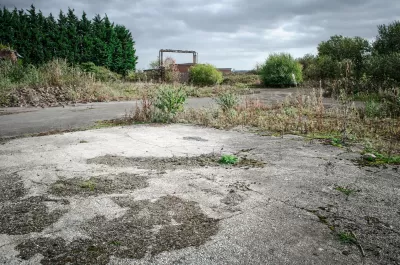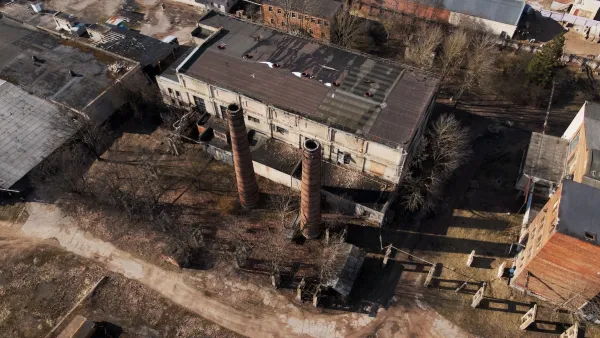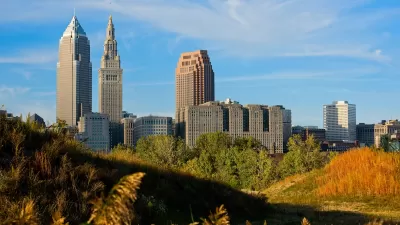Building hospitals and other health-oriented facilities on former brownfield sites can benefit the community, but can also perpetuate historic inequities and exploit undervalued land at the expense of local residents.

In an excerpt from Health Colonialism: Urban Wastelands and Hospital Frontiers republished in Next City, Shiloh Krupar assesses how using brownfields for health facilities can contribute to health disparities in low-income neighborhoods.
As Krupar explains, brownfield remediation caught on in the 1990s, promising a “green investment” that would develop underused land and clean up environmental pollution. “A form of brownfield project called healthfields reframes land revitalization as an ongoing public health effort involving community stewardship of bodies of land and human health. This land reuse policy seeks to remedy medical scarcity in underserved BIPOC communities and close the biomedical divide that separates bodily health and clinic-based acute care from environmental conditions.”
But for Krupar, “The emphasis of brownfield programs, and by extension healthfields, on environmental cleanup standards and land futures allied to property productivity potentially means that significant but uncertain contamination remains.” Although healthfields may bring badly needed services to underserved neighborhoods, “they risk re-entrenching health disparities stemming from historic segregation, environmental racism and waste colonialism.” In many cases, healthfield projects “spur the growth of extractive development projects that exploit devalued land and do not necessarily give local communities a seat at the table of economic planning and governance.”
As long as a priority is placed on land values, Krupar notes, “It justifies ongoing land grabs under the banner of environmental health. Planting parks, farmers markets or other environmental amenities as trickle-down benefits to local health-stricken communities can intensify gentrification and entrench geographies of waste and race by ‘greenwashing’ displacement.”
FULL STORY: Turning Brownfields Into Hospitals Can Improve Public Health. It Can Also Entrench Disparities.

Maui's Vacation Rental Debate Turns Ugly
Verbal attacks, misinformation campaigns and fistfights plague a high-stakes debate to convert thousands of vacation rentals into long-term housing.

Planetizen Federal Action Tracker
A weekly monitor of how Trump’s orders and actions are impacting planners and planning in America.

In Urban Planning, AI Prompting Could be the New Design Thinking
Creativity has long been key to great urban design. What if we see AI as our new creative partner?

Massachusetts Budget Helps Close MBTA Budget Gap
The budget signed by Gov. Maura Healey includes $470 million in MBTA funding for the next fiscal year.

Milwaukee Launches Vision Zero Plan
Seven years after the city signed its Complete Streets Policy, the city is doubling down on its efforts to eliminate traffic deaths.

Portland Raises Parking Fees to Pay for Street Maintenance
The city is struggling to bridge a massive budget gap at the Bureau of Transportation, which largely depleted its reserves during the Civd-19 pandemic.
Urban Design for Planners 1: Software Tools
This six-course series explores essential urban design concepts using open source software and equips planners with the tools they need to participate fully in the urban design process.
Planning for Universal Design
Learn the tools for implementing Universal Design in planning regulations.
Gallatin County Department of Planning & Community Development
Heyer Gruel & Associates PA
JM Goldson LLC
City of Camden Redevelopment Agency
City of Astoria
Transportation Research & Education Center (TREC) at Portland State University
Jefferson Parish Government
Camden Redevelopment Agency
City of Claremont





























